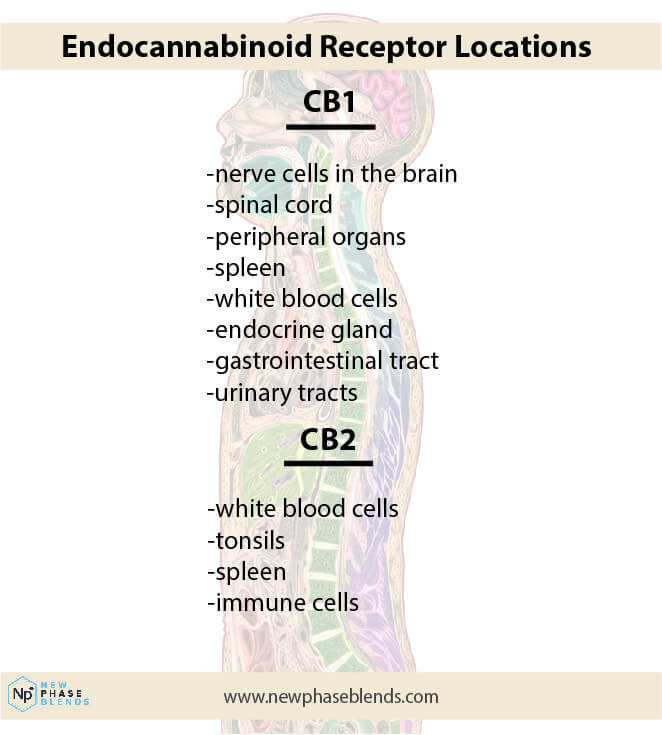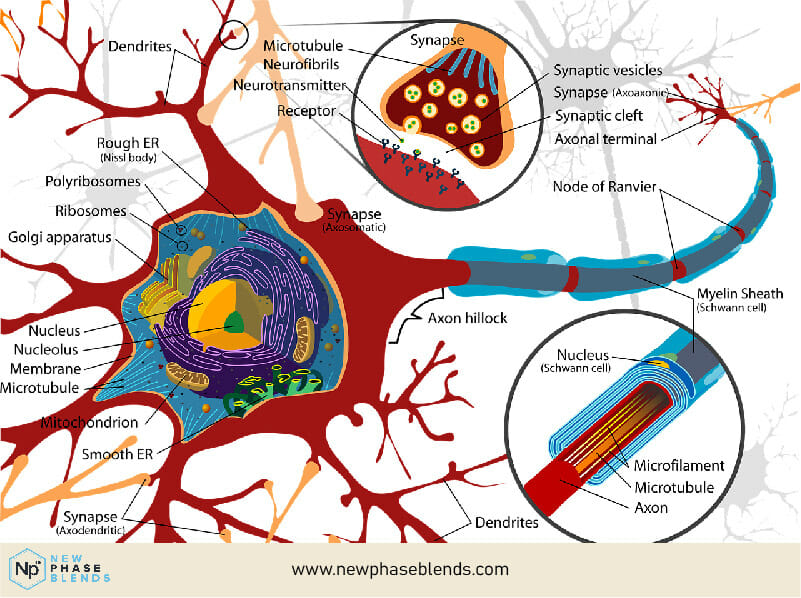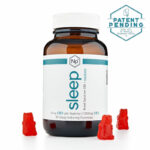Are you curious about Delta 8 gummies but unsure how they actually work in your body? Many people seeking alternatives to traditional cannabis products or exploring the CBD market find themselves wondering exactly how Delta 8 THC gummies function and what makes them different from other cannabinoid products. This comprehensive guide will explain the science behind how Delta 8 gummies work, their effects on your body and mind, and how they compare to CBD products.
At Wellness Horizon, we’ve been researching cannabinoid products for over five years, working directly with certified labs and gathering insights from thousands of customers. This article draws on our extensive experience to provide you with accurate, practical information about Delta 8 gummies and their effects.
What Are Delta 8 Gummies?
Delta 8 gummies are edible products infused with Delta 8 THC (tetrahydrocannabinol), a naturally occurring cannabinoid found in cannabis plants. These gummies have gained popularity as a way to experience some of the therapeutic benefits associated with cannabis while potentially avoiding the intense psychoactive effects often linked to Delta 9 THC, the primary psychoactive compound in marijuana.
These gummies typically come in various flavors, strengths, and formulations, making them appealing to both newcomers and experienced users in the cannabinoid space. Like other edible products, they offer an alternative to smoking or vaping, which some users prefer for health or discretion reasons.
CBD Gummies for Sale by New Phase Blends
Type: CBD Starter Kit Bundle
Includes: Tincture, Balm, and Gummies
Features: You create your own kit with your custom product choices
Type: CBD gummies for sleep
CBD: 45mg per gummy
Features: Free Shipping, Money Back Guarantee
The Science Behind Delta 8 THC
The Endocannabinoid System Explained
To understand how Delta 8 gummies work, we need to first understand the endocannabinoid system (ECS). The ECS is a complex cell-signaling system in your body that plays a role in regulating various functions and processes. These include sleep, mood, appetite, memory, reproduction, and pain sensation.
The ECS consists of endocannabinoids (compounds your body naturally produces), receptors, and enzymes. The two main types of receptors in the ECS are CB1 and CB2 receptors. CB1 receptors are primarily found in the central nervous system, while CB2 receptors are mainly found in the peripheral nervous system and immune cells.

How Delta 8 THC Interacts With Your Body
Delta 8 THC works by binding to these endocannabinoid receptors, particularly the CB1 receptors. However, Delta 8 binds to these receptors differently than Delta 9 THC does. This difference in binding affinity is what creates the unique effects associated with Delta 8 products.
When you consume Delta 8 gummies, the compound must first be metabolized by your digestive system before entering your bloodstream. Once in your bloodstream, Delta 8 THC travels to your brain and binds to CB1 receptors, producing its effects. It also interacts with CB2 receptors throughout your body, which may contribute to some of its potential therapeutic properties.
Delta 8 Gummies vs. CBD: Understanding the Differences
When comparing Delta 8 gummies to CBD products, several key distinctions become apparent:
Chemical Structure
Delta 8 THC and CBD have different molecular structures. While both are cannabinoids, Delta 8 THC has a double bond on the 8th carbon chain, whereas CBD has a completely different structure with no double bond in that position. This structural difference is responsible for their different effects on the body.
Psychoactive Effects
One of the most significant differences between Delta 8 and CBD is their psychoactive properties. Delta 8 THC is mildly psychoactive, meaning it can produce a “high,” though typically milder than Delta 9 THC. In contrast, CBD is non-psychoactive and doesn’t produce a high, making it appealing for those who want potential therapeutic benefits without any intoxicating effects.
Receptor Binding
Delta 8 THC and CBD interact with your endocannabinoid system differently. Delta 8 primarily binds to CB1 receptors, similar to Delta 9 THC but with less intensity. CBD, however, doesn’t bind directly to CB1 or CB2 receptors but instead influences them indirectly and interacts with other receptors in the body. This difference in receptor interaction explains why Delta 8 can produce mild psychoactive effects while CBD doesn’t.
How Delta 8 Gummies Are Processed in Your Body
The Digestive Journey
When you consume Delta 8 gummies, they follow a specific path through your body:
- Digestion: After eating a Delta 8 gummy, it travels through your digestive system, where it begins to break down.
- Liver Metabolism: The Delta 8 THC is metabolized by your liver, where it undergoes a process called first-pass metabolism. During this process, some of the Delta 8 THC is converted into 11-hydroxy-THC, a metabolite that can actually be more potent than Delta 8 itself.
- Bloodstream Entry: Once metabolized, the compounds enter your bloodstream, where they can travel throughout your body, including to your brain.
- Receptor Binding: As mentioned earlier, Delta 8 THC binds to CB1 receptors in your brain and throughout your nervous system, as well as to CB2 receptors in your peripheral tissues.

Onset and Duration of Effects
The way Delta 8 gummies are processed in your body affects their timing and duration:
- Onset Time: Unlike smoking or vaping, which can produce effects within minutes, Delta 8 gummies typically take 30 minutes to 2 hours to take effect. This is because they must be digested and metabolized before the active compounds reach your bloodstream.
- Duration: The effects of Delta 8 gummies generally last longer than inhaled methods, typically 4-8 hours depending on various factors, including your metabolism, body weight, tolerance, and the specific product.
- Peak Effects: The effects usually peak about 2-3 hours after consumption, which is why it’s important to wait before deciding to take more.
Potential Effects of Delta 8 Gummies
Delta 8 gummies can produce a range of effects, which may vary based on individual factors such as body chemistry, tolerance, and dosage. Common reported effects include:
Physical Effects
Delta 8 gummies can produce physical effects such as relaxation and reduced tension, potential pain relief, and increased appetite. Users may also experience potential anti-nausea properties and drowsiness, especially at higher doses.
Mental Effects
The mental effects of Delta 8 gummies commonly include mild euphoria and altered perception (milder than Delta 9 THC). Many users report potential anxiety relief, increased focus, and an overall sense of calmness and well-being.
Therapeutic Potential
Early research and anecdotal evidence suggest Delta 8 THC may have several potential therapeutic applications, though more research is needed. These applications include anxiety management, pain relief, nausea reduction, appetite stimulation, and assistance with sleep difficulties.
Proper Dosage and Consumption Guidelines
Understanding proper dosage is crucial for a positive experience with Delta 8 gummies:
Starting Dosage
For beginners or those new to Delta 8, it’s advisable to start with a low dose, typically 5-10mg of Delta 8 THC. This allows you to gauge your body’s response before increasing the amount.
Finding Your Optimal Dose
Everyone’s endocannabinoid system is unique, so finding your ideal dose may require some experimentation. It’s best to start with a low dose (5-10mg) and wait at least 2 hours to fully assess the effects. If needed, gradually increase by 5mg increments on subsequent days, while noting your experiences and adjusting accordingly. This methodical approach helps minimize unwanted effects while finding the dose that works best for your body.
Timing Considerations
Since Delta 8 gummies take longer to take effect compared to other consumption methods, timing is important:
- Take gummies 1-2 hours before you want to feel the effects
- Avoid taking additional doses within the first 2 hours, even if you don’t feel anything yet
- Consider your planned activities when deciding when to consume
Potential Side Effects and Precautions
While Delta 8 THC is generally reported to have fewer side effects than Delta 9 THC, users should be aware of potential adverse effects:
Common Side Effects
Users of Delta 8 gummies may experience some common side effects including dry mouth, red eyes, and drowsiness. Some individuals report increased heart rate, coordination issues (particularly at higher doses), and mild anxiety, though the anxiety is typically less common than with Delta 9 THC.
Important Precautions
It’s crucial to avoid driving or operating heavy machinery after consuming Delta 8 gummies due to their psychoactive effects. Always start with low doses, especially if you’re new to cannabinoids, and be aware that Delta 8 THC can potentially result in a positive drug test for THC. Consulting with a healthcare provider before use is advisable, particularly if you’re taking medications or have underlying health conditions. Finally, always keep Delta 8 products out of reach of children and pets.
Legal Considerations and Purchasing Tips
The legal status of Delta 8 THC exists in a somewhat gray area and varies by location:
Legal Status
Delta 8 THC derived from hemp (containing less than 0.3% Delta 9 THC) exists in a legal gray area at the federal level in the United States. Some states have explicitly banned Delta 8 THC, while others permit it. It’s essential to research and understand the laws in your specific location before purchasing or using Delta 8 products.
Quality and Safety Tips
When shopping for Delta 8 gummies, it’s important to look for products from reputable companies that provide third-party lab testing results. Always check for a certificate of analysis (COA) that verifies cannabinoid content and screens for contaminants. Reading ingredient lists carefully helps you avoid unwanted additives, while researching the company’s reputation and customer reviews provides insight into product quality. Be wary of unusually low prices, as they may indicate lower quality products that could potentially contain harmful ingredients.
The Future of Delta 8 Research
Research into Delta 8 THC is still in its early stages, with much to learn about its full potential benefits and long-term effects. Current research areas include:
- Comparative studies between Delta 8 and other cannabinoids
- Potential therapeutic applications for specific conditions
- Long-term safety profiles
- Optimal formulations and delivery methods
The scientific community’s growing interest in cannabinoids suggests we’ll likely see more research on Delta 8 THC in the coming years, potentially leading to new applications and improved products.
Conclusion
Delta 8 gummies work through complex interactions with your body’s endocannabinoid system, particularly by binding to CB1 receptors in your brain and nervous system. Unlike CBD, Delta 8 THC produces mild psychoactive effects, offering a middle ground between non-intoxicating CBD and more potent Delta 9 THC.
Understanding how Delta 8 gummies are processed in your body—from digestion through liver metabolism and ultimately to receptor binding—helps explain their delayed onset and longer-lasting effects compared to inhaled methods. With proper dosing, Delta 8 gummies may provide various effects, from relaxation and mood enhancement to potential therapeutic benefits.

As with any cannabinoid product, starting with low doses, being mindful of local laws, and purchasing from reputable sources are essential practices for a safe and positive experience. As research continues to evolve, our understanding of Delta 8 THC and its potential applications will likely expand, possibly opening new doors in the wellness space.
Remember to always consult with a healthcare provider before incorporating Delta 8 gummies or any cannabinoid product into your wellness routine, especially if you have underlying health conditions or take medications.























